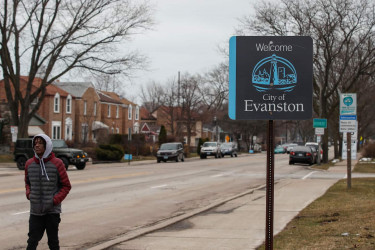The Evanston City Council approved the first phase of reparations to acknowledge the harm caused by discriminatory housing policies, practices and inaction going back more than a century. The 8-to-1 vote will initially make $400,000 available in $25,000 homeownership and improvement grants, as well as in mortgage assistance for Black residents, primarily those can show they are direct descendants of individuals who lived in the city between 1919 and 1969 and suffered from such discrimination.
The housing money is part of a larger $10 million package approved for continued reparations initiatives, which will be funded by income from annual cannabis taxes over the next decade. Black residents make up about 16 percent of Evanston’s population of 75,000.
More than 60 people spoke before the vote, many endorsing the resolution and calling for the city to take the historic step, others criticizing it and pleading for more time to reshape the plan. Housing assistance, detractors said, isn’t a credible form of reparations.
“It’s a first tangible step,” said Alderwoman Robin Rue Simmons, who represents the largely African American Fifth Ward and has been a key force on the program. “It is alone not enough. It is not full repair alone in this one initiative. But we all know that the road to repair injustice in the Black community will be a generation of work. . . . I’m excited to know more voices will come to the process.”
The issue of reparations has been raised nationally for decades, with supporters focusing not just on financial restitution for the descendants of enslaved Americans but also on governments’ formal apologies for their role in that legacy.
In the wake of anti-racism demonstrations that swept the country last summer — after the police killings of George Floyd in Minneapolis and Breonna Taylor in Louisville — California established a task force to propose a model for reparations. Chicago and several other cities are discussing reparations programs of their own.
Historian Jennifer Oast, an expert on institutional slavery at Bloomsburg University in Pennsylvania, expects that the Evanston program in particular will have a “snowball effect” on proposed federal legislation.
